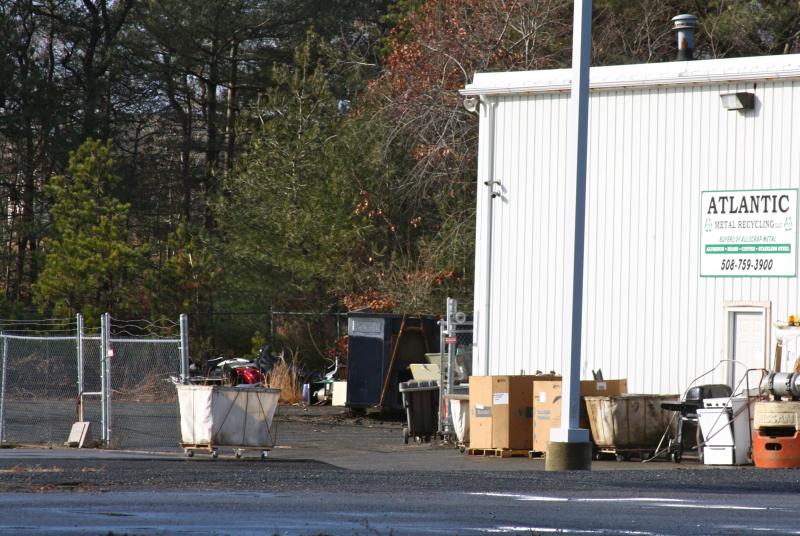Atlantic Metal Recycling public hearing continued to February
Much to the chagrin of the crowd who waited four hours to speak at the January 11 public hearing to address the expansion of East Wareham recycling business Atlantic Metal Recycling, the Zoning Board of Appeals continued the public hearing to February.
The Zoning Board of Appeals deemed the company's application incomplete because the site plan it submitted did not meet zoning by-law requirements. The business is looking to expand the metal recycling operation into the parking area at its current 3127 Cranberry Highway location.
Leonard Bello, attorney for the business, spent the better part of two hours debating whether a special permit was needed, whether the site plan was needed, and then whether the information should be required since it would be an added expense to the applicant.
Tracey White, the owner of Atlantic Metal Recycling, leases the property in back of Thomas Michael’s Kitchens from Anderson-Ferreira, LLC, owners.
In his presentation, Bello stated that Atlantic Metal Recycling was given a town permit in April 2011. When White went to expand his business in June 2011 to include six containers in the parking lot and a 45-foot scale elevated two feet off the ground, he was directed to the Planning Board. He was told that board did not require a site plan, as his expansion did not require 10 parking spaces, Bello said. White was then issued a letter of denial by Director of Inspectional Services Myles Burke and then applied for a special permit.
When Bello attempted to define the operation as a “wholesale” business under the zoning bylaw, which would be permitted as-of-right, Zoning Board of Appeals Chair Kenneth Ferriera stopped him and reviewed the definition of salvage yard from the bylaws.
“What you’ve described so far, peddlers and residents bringing material in, fits the definition of a salvage yard,” said Ferriera. “No one comes to buy the product and distribute it for sale.”
Salvage yards require a special permit and a site plan, a point Bello also debated with the Board. Zoning Board member Michael Martin said site plans were a necessary component of the special permit and that the applicant should return with a complete set of engineering plans including environmental impact statements. In particular, Martin said, stormwater runoff improvements may be needed for storm water runoff from the open containers of scrap metal.
Ferriera added that the type of use requires a review of all parking, lighting, runoff, landscaping, and fencing that will be needed.
“It would be disrespectful to make him pay $10,000 and then say that ‘we don’t want a recycling plant,’” Bello argued. “Can I get a poll the Board on the use?”
Ferriera responded that special permits must be reviewed on the whole. But, he said, special permits are not a regulatory tool to deny permits.
“It’s a regulatory tool to enhance [the use] and allow it to exist. If proper safeguards such as noise attenuation, lighting, screening and runoff are in place, it should be allowed.”
The public hearing will resume on February 8.














